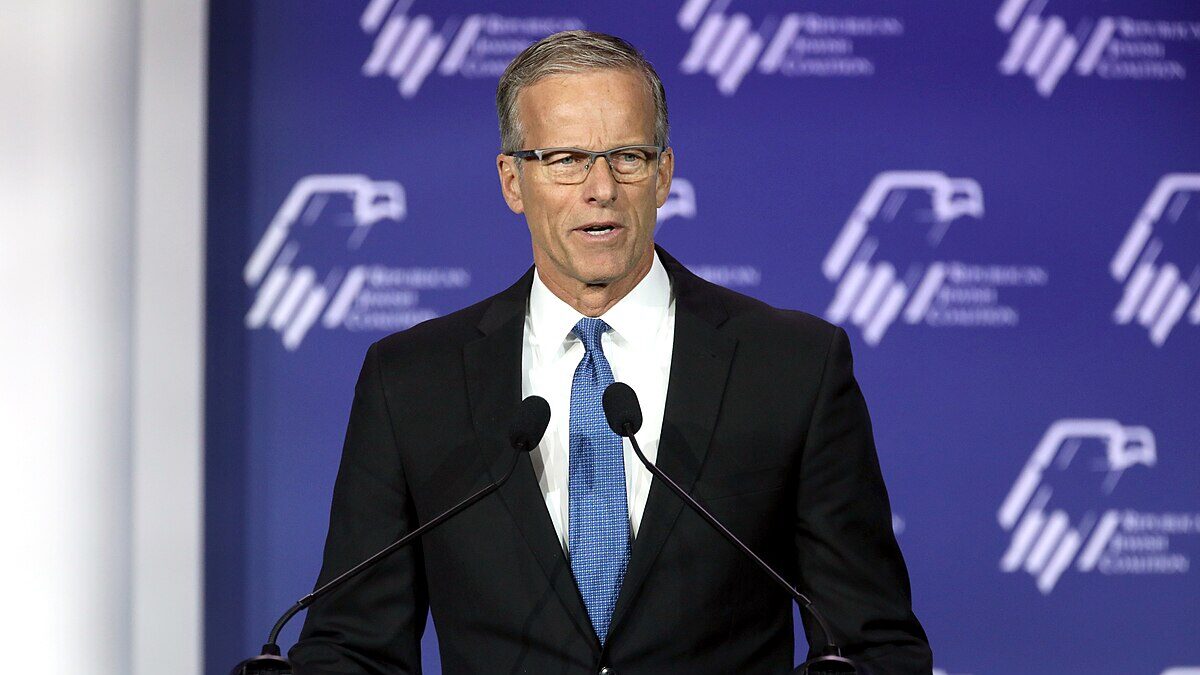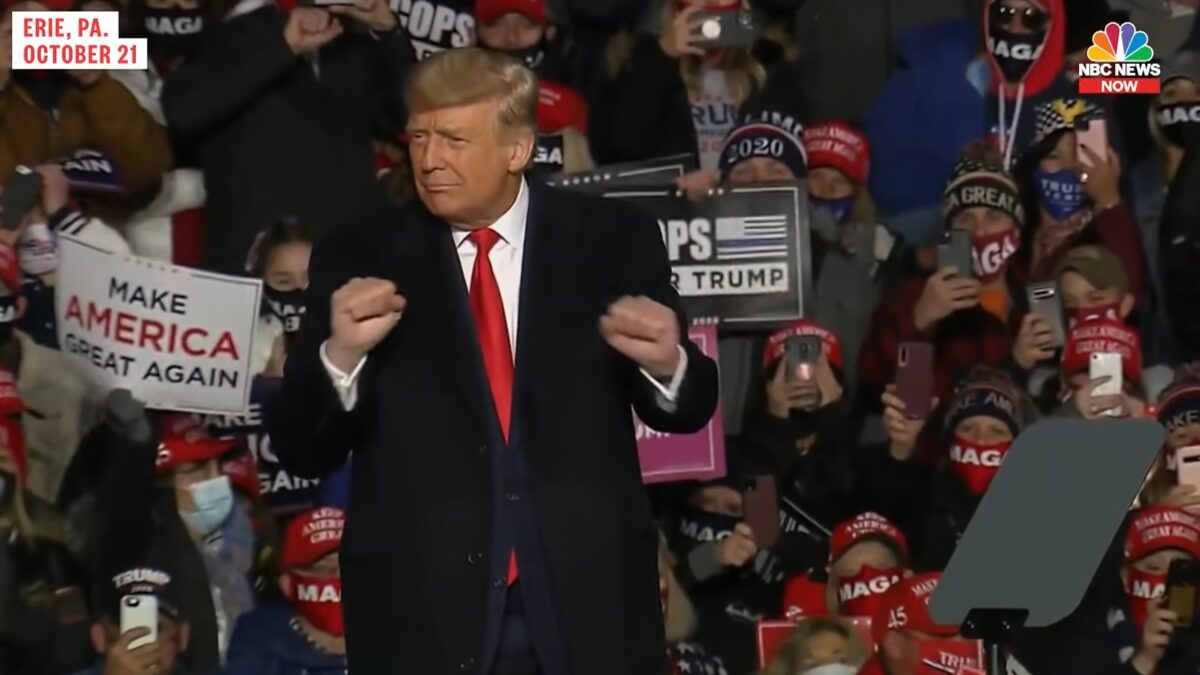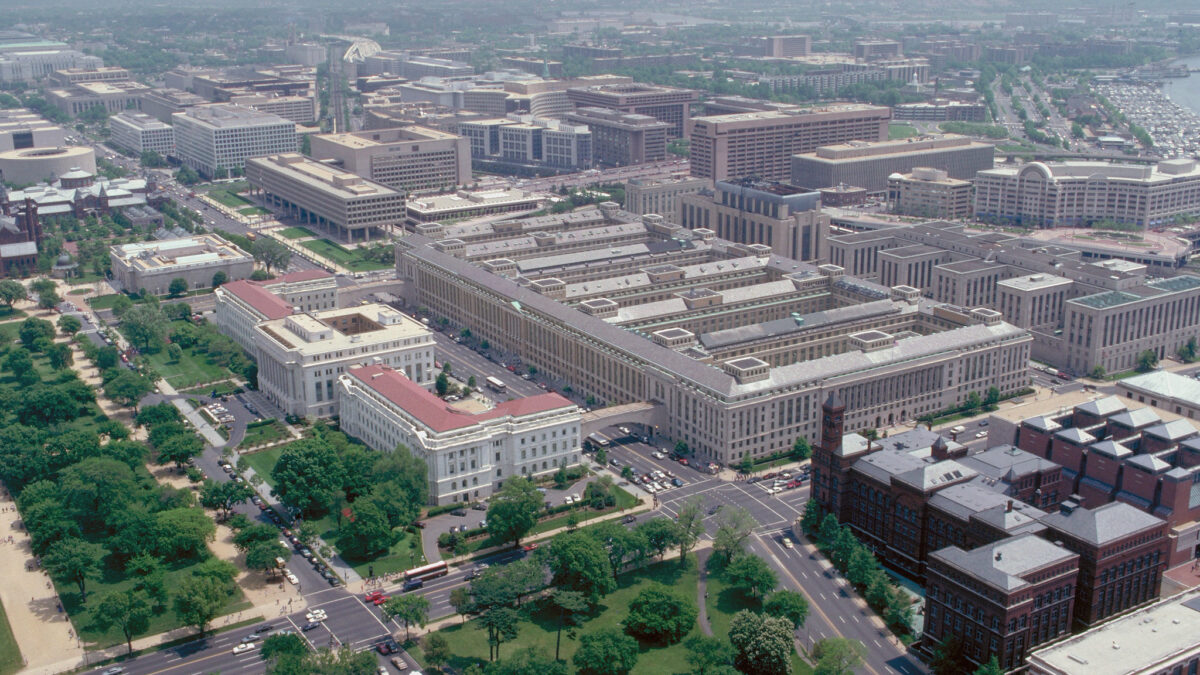
Do Democrats have a successful template to follow in their investigations against President Donald Trump? According to a recent Politico article, their model may be the same strategy they deplored only a few years ago when Republican rivals employed it. Rather than impeach Trump or even Attorney General William Barr, they can Benghazi him.
Democrats spent the last two years hoping that Special Counsel Robert Mueller would take down the Trump administration with charges that substantiated their allegations that he had colluded with the Russians to win the presidency. That didn’t happen, so now they face the problem of how to leverage Mueller’s report to their political advantage without outing themselves as partisan obstructionists focused on re-litigating the 2016 election. The same quandary applies to the multiple investigations into Trump’s finances and business practices prior to becoming president that Democrat-controlled House committees are in the process of launching.
The answer, according to some Democrats, is that they should follow the strategy Republicans pursued during the second Obama administration. Since impeachment is a dead end that Democratic leaders like House Speaker Nancy Pelosi want no part in and that would fail in the Senate, the party needs something that would channel the energy and anger of their base against Trump into a constructive format while not setting them up for confrontations that might benefit the GOP. That leads them to the conclusion that they should copy the strategy congressional Republicans pursued from 2012 to 2016 as they investigated what happened during the terror attack on Benghazi that led to the death of four Americans.
While Congress has just as much right to investigate Trump now as it did Barack Obama while he was in the White House, Democrats ought to think twice about going down this road. While some Republicans may think the Benghazi probes helped pave the way for their 2016 victory, it can be argued that the obsession with Benghazi did as much harm to the GOP as it did to Obama.
Even if the discussion about Benghazi burdened former secretary of state Hillary Clinton—the focus of much of the Republicans’ efforts—it didn’t derail her presidential campaign. Moreover, Democrats aren’t likely to cull as much from their desire to go back down the Russia collusion rabbit hole or the deep dive into Trump’s business record as the sparse returns the GOP got from Benghazi.
What Led to the Benghazi Investigations
The shocking terror attack on the U.S. compound in Benghazi, Libya on September 11, 2012, was a low point in the Obama administration. Libya’s descent into chaos following the intervention by the United States and its allies that led to the collapse of the despotic regime of dictator Muammar Gaddafi was a blow to Obama’s foreign policy. For most Americans, though, Benghazi was about the deaths of four Americans, including the brutal murder of U.S. Ambassador Christopher Stevens.
Congressional investigations sought to find out how and why the State Department and the U.S. military failed to come to the Americans’ rescue. Yet nothing the various committees found contradicted the initial report by the State Department’s Accountability Review Board that found that Clinton and her staff had been negligent in ensuring the safety of U.S. personnel in Benghazi. It did not substantiate the charge that Obama and Clinton had deliberately delayed the U.S. response to the attack. While some of those involved believed that Washington could have done more to save Stevens and the other three, that allegation was never clearly proved.
But the real embarrassment was the investigation into why both Obama and Clinton sought to falsely characterize the attack as a protest about a video that attacked Muslims. This claim was put forward first by talking points the CIA prepared that sought to downplay the idea that Benghazi was a terrorist attack. This was false, as well as being politically motivated by a desire on the part of the administration to quash any idea that Islamist terror was still a problem. With Obama’s re-election campaign claiming that the death of Osama bin Laden had ended the threat, Benghazi was an untimely reminder that those boasts were untrue.
People Saw Right Through the Spin
The shameful attempts to spin the Benghazi attacks as the fault of a protest about a video were made even worse by the allegation that Clinton had spoken that obvious untruth to one of the parents of the fallen Americans. But as egregious as that might have been, those lies broke no laws even if the attempt to obfuscate the truth about Benghazi undermined any traction the GOP may have gotten from the attack in the 2012 presidential election.
While the episode was a disgrace, all a Senate committee probe, four separate House committee investigations, and the creation of a special House Select Committee on Benghazi achieved was keeping the issue alive. Clinton’s exasperated and inappropriate response to a question during one of the times she was forced to testify about Benghazi—“What difference does it make?”—was continually thrown in her face when she was running for president in 2016.
Yet the avalanche of committee probes did nothing to resolve the country’s doubts about the incident and ultimately no one was held accountable for the failure to rescue the four Americans. Democrats could respond that all of the energy expended on Benghazi was a deeply cynical and disproportionate political vendetta against Clinton and a vast waste of time and resources by Congress.
Democrats deplored the GOP’s obsession with Benghazi at the time. But faced with the demands of the anti-Trump “resistance” that they use their House majority to do all possible to attack the administration, the Benghazi model may seem more attractive to them today. Keeping Trump on the defensive by inundating him with requests for information and endless hearings could help the Democrats in 2020. And if they walk away with a moment in which Trump might provide them a quote that was as embarrassing as Clinton’s gaffe, perhaps it might be worth it.
Dem’s Won’t Succeed Where Mueller Failed
But the problem with the analogy is that Mueller effectively foreclosed any chance of the Democrats finding investigative gold. While the GOP could claim that the State Department’s internal investigative into Benghazi couldn’t be considered objective or conclusive, Mueller’s deep dive into anything remotely related to the Trump campaign and Russia yielded nothing proving collusion, and he refrained from pushing a dubious obstruction of justice charge against the president.
If Democrats could mock Republicans for obsessing about Benghazi, how much more could Trump and the GOP say if Democrats spend the next year seeking what Mueller’s comprehensive probe said didn’t exist?
The Benghazi probes may have chipped away at Clinton’s image, although they paled in comparison to the problems she caused herself with a self-inflicted wound over her emails and her cavalier attitude toward security. But there’s little the Democrats could find out about Trump that both supporters and critics don’t already know.
He won an election while refusing to release his tax returns and after being exposed by the “Access Hollywood” tape as being a self-confessed assaulter of women. In that sense, much as the Democrats keep laboring under the delusion that investigations can damage him, he is politically bulletproof against their allegations, since nothing they find will influence his backers or lessen the animosity of his opponents.
But if Democrats remain as obsessed with trying to undo the 2016 results as Republicans were with Benghazi, they can do themselves harm. That will make it appear as if they are the ones pursuing a political vendetta when they should be doing the people’s business, the same accusation lobbed at the GOP with good effect during their Benghazi probes.
As Republicans learned, the circus atmosphere of congressional hearings tarnishes everyone connected with the exercise. Partisans may relish them and, as with the GOP base with respect to Benghazi, the Resistance will not be satisfied with anything less than an all-out effort to get Trump. But if Democrats think they are enhancing their chances of winning 2020 by falling into the same ideological trap as Republicans did, they are making a mistake.









